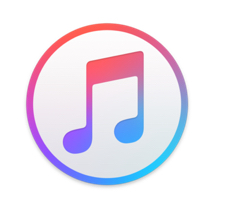
The UK Intellectual Property Office (IPO) has decided that ripping a CD in iTunes is no longer permitted, and neither is backing up your computer if it contains copyrighted content, notes TorrentFreak. That’s not right.
If I’ve legally purchased a CD, I should have the legal right to make a digital copy for my Mac and be able to listen to it on my computer, my iPod, my iPad, or my iPhone. What I SHOULDN’T be able to do is “rip” a copy and give it to someone else. That is indeed “ripping off” all the talent involved in creating the music.
Last year the UK Government legalized copying for private use, a practice which many citizens already believed to be legal. The UK Intellectual Property Office noted that the changes were “in the best interest” of consumers and that they would bring copyright law into the 21st century. However, fearing a loss of income several music groups objected at the High Court, which subsequently agreed that the new legislation is unlawful, notes TorrentFreak.
“It is now unlawful to make private copies of copyright works you own, without permission from the copyright holder – this includes format shifting from one medium to another,” an UK Intellectual Property Office spokesperson told TorrentFreak.
Since copying a CD to an MP3 player or computer isn’t permitted, this means that iTunes’ “ripping” feature. What’s more, under the current law iTunes is actively facilitating copyright infringement by promoting their CD-ripping functionality so Apple “could face significant claims for damages,” notes TorrentFreak.
This matter will likely end up in court. It’s just one of the issues facing us in the age of digital media. For instance, when you “buy” digital content such as books, music and movies from Apple and Amazon, you’re actually just renting them. As more people realize this, it’s unlikely they’ll reconsider making physical purchases instead of digital purchases. This needs to change.
Apple and Amazon grant “nontransferable” rights to use content. In other words, when you buy digital content, you own a license to use the digital files, but you don’t truly own them. I’ve bought lots of music and movies on iTunes. However, unless the law changes I can’t give bequeath them to my kids.
That stinks.
As noted in a 2012 Wall Street Journal article, someone who owns 10,000 hardcover books and the same number of vinyl records could leave them to descendants. However, legal experts say passing on iTunes and Kindle libraries would be much more complicated.
“I find it hard to imagine a situation where a family would be OK with losing a collection of 10,000 books and songs,” Evan Carroll, co-author of “Your Digital Afterlife” told the WSJ.” Legally dividing one account among several heirs would also be extremely difficult.”
In recent years, Connecticut, Rhode Island, Indiana, Oklahoma and Idaho passed laws to allow executors and relatives access to email and social networking accounts of those who’ve died, but the regulations don’t cover digital files that have been purchased. As the WSJ notes, there are few legal and practical ways to inherit e-books and digital music, experts say.
The Law Librarian Blog says digital files aren’t transferrable, at least in a legal sense. So what can you do?
- Be sure your heirs know the passwords to your iTunes account and other digital stores.
- Buy only DRM (digital rights management) free products not tied to any specific account.
- Back-up your files to physical media and pass them on.
Of course, these approaches are kludgy work-arounds and a bit impractical.
The best plan, for now, seems to be creating a Digital Asset Trust. There are services such as Family Archival Solutions, PasswordBox (which includes Legacy Locker) and SecureSafe, among others, that aim to offer online solutions to the digital-asset conundrum — from full-service estate plans for your online accounts to simple password-management solutions.
A related issue is that if all of your files are stored remotely, and only accessible by you, what happens if Apple or Amazon goes belly up? Or those companies that offer digital asset trust planning? What about all those ebooks, music and movies you’ve shilled out for?
Digital media has, in many cases, overtaken physical media. However, there’s one big advantage to buying books in print, CDs and DVDs; we can give them to, or share them with, anyone we wish.
We need the same rights for digital content.
